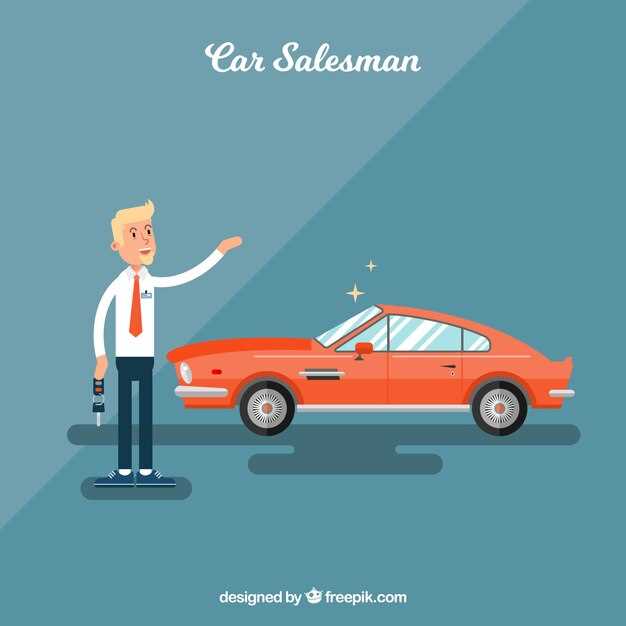Liability Requirements for Classic Car Owners

Owning a classic car is not just a hobby; it also comes with a unique set of legal and financial responsibilities. One of the most critical aspects of classic car ownership is understanding liability. Liability refers to the legal obligation to compensate for damages or injuries caused during the ownership and operation of a vehicle. This concept is essential for classic car enthusiasts to grasp, as it can impact both their finances and their driving experience.
In many regions, state laws require classic car owners to maintain specific liability insurance coverage. This ensures that, in the event of an accident, you are financially protected against claims for bodily injury or property damage. The requirements can vary significantly depending on the vehicle’s use, value, and the owner’s driving history. Therefore, it’s crucial to research local regulations and to communicate with your insurance provider to tailor a policy that aligns with your needs.
Understanding liability is not solely about meeting legal obligations; it also involves assessing the risks associated with classic car ownership. As vintage vehicles often lack modern safety features, owners may be held to higher standards of care. This article will delve deeper into the specifics of liability requirements, offering guidance on how to protect yourself and your investment while enjoying the freedom that comes with classic car ownership.
Understanding Insurance Coverage Options for Classic Cars

Owning a classic car entails not just a passion for vintage vehicles, but also a solid understanding of the legal insurance options available to protect your investment. Classic cars often require specialized insurance coverage that differs significantly from standard auto insurance policies.
One of the primary options for classic car owners is agreed value coverage. This type of policy allows you to set a predetermined value for your classic car, which is particularly important given the potential appreciation in value over time. In the event of a total loss, the insurance company agrees to pay you the full agreed amount, ensuring you won’t face a financial shortfall.
Another key option is liability coverage, which is essential for any vehicle owner, including classic car enthusiasts. This coverage protects you in case you are found legally responsible for damaging someone else’s property or causing bodily injury in an accident. Ensuring you have adequate liability coverage is crucial, as it fulfills legal requirements while safeguarding your finances.
Many classic car insurance policies also offer comprehensive and collision coverage. Comprehensive coverage protects against non-collision-related incidents such as theft, vandalism, or natural disasters. Collision coverage provides funds for repairs or vehicle replacement in the event of an accident, regardless of fault.
Classic car owners should also consider mileage limitations. Many insurance policies encourage limited use, which typically means lower premiums. However, it is vital to ensure that your driving habits align with the policy’s terms to avoid complications during claims.
Lastly, consider additional options such as roadside assistance and custom parts coverage. These can provide peace of mind while on the road and protect investments in unique modifications made to your classic car.
In summary, understanding your options for insuring a classic car is crucial to fulfilling legal obligations while protecting your investment. Carefully evaluate different policies to choose the coverage that best suits your needs as a classic car owner.
State-Specific Liability Regulations for Vintage Vehicles
Liability requirements for vintage vehicles vary significantly across different states in the U.S. This variation can greatly influence the costs and responsibilities associated with owning a classic car. Each state has its own laws regarding mandatory insurance coverage, limits on liability, and the definition of what constitutes a vintage vehicle.
In some states, classic car owners are required to obtain liability insurance that meets the same minimum coverage limits as standard vehicles. This generally includes bodily injury and property damage liability, which protects against claims arising from accidents. For example, states like California and Texas have clear mandates for liability insurance that must be adhered to by all car owners, including those with vintage vehicles.
Conversely, some states offer specialty insurance options specifically tailored for classic cars. These policies often come with unique stipulations regarding vehicle usage and valuation. In states like Florida and Pennsylvania, owners may benefit from insuring their cars under classic or antique car policies, which typically provide lower premiums in exchange for mileage limits and usage restrictions.
Moreover, a few states may have laws that recognize the historical value of vintage cars, allowing for lower liability coverage requirements. For instance, in Maine and New Hampshire, vintage vehicles may be eligible for reduced coverage due to their status and limited road usage. However, owners must ensure they meet the specific criteria outlined by their state to qualify for these exemptions.
It is crucial for vintage car owners to understand their state’s specific liability regulations to ensure compliance and adequate protection. Consulting with an insurance specialist familiar with classic vehicles can help navigate the complexities of these laws, ensuring peace of mind while enjoying a cherished automobile.
Implications of Liability in Classic Car Restoration and Modifications

When it comes to classic car restoration and modifications, understanding the implications of liability is crucial for owners and restorers alike. Engaging in restoration projects often involves inherent risks, which can lead to legal liabilities if not properly managed. For instance, if modifications are made that alter the car’s structural integrity, the owner may be held responsible for any accidents that occur as a result.
Moreover, it is important to consider compliance with local laws and regulations regarding vehicle modifications. Unauthorized changes might not only void warranties but also attract fines, raising questions of liability. If a classic car is modified improperly and causes harm to other drivers or pedestrians, the owner could face significant legal repercussions, including lawsuits and financial damages.
Additionally, when hiring third-party professionals for restoration work, owners must ensure that these individuals carry the necessary insurance. Failing to do so could leave the owner liable for any mistakes made during the restoration process. Therefore, due diligence in selecting qualified and insured professionals is critical.
Documentation of the restoration process, including receipts, contracts, and photographs, can serve as essential evidence in case of disputes. This is particularly important in establishing legal ownership and the level of investment in the vehicle. Proper documentation helps to protect against claims and reinforces the owner’s position in potential liability issues.
Ultimately, owners must approach classic car restoration and modifications with a keen understanding of the potential legal implications. Being proactive in adhering to legal standards and ensuring thorough documentation can significantly mitigate liability risks involved in these projects.



